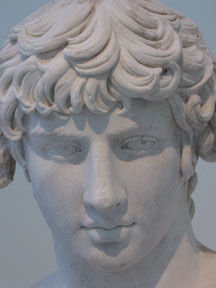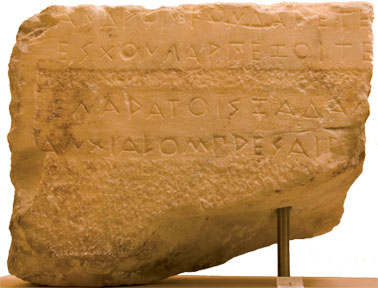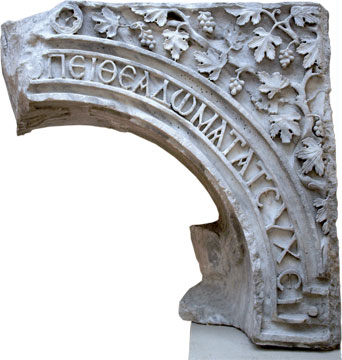Epigrams
By Shireen SENADHIRA
A part of a conversation I heard some time ago went like this: Ruby
addressed Arlene at the beginning of a picnic. ‘What on earth kept you
darling?’ (People in fashionable social circles constantly referred to
each other as ‘darling.’) Ruby continued, ‘no don’t tell me. I can
guess. You had a puncture. Such a romantic road, isn’t it? Dear me, how
useful punctures are! I wonder how people managed without them before
there were cars?’ The tinkling laugh ter that followed this pleasantry
had a hint of malice and Arlene’s brown eyes widened into innocence.
‘Well , of course, you’d know it, ‘ Arlene countered sweetly. Touche’ I
told myself. Arlene got at Ruby very well.
 Later, thinking about the conversation, I went over the sentences and
recounted the different expressions on Ruby’s and Arlene’s faces too.
The last expression on Ruby’s face kept me chuckling to myself. I
enjoyed recapturing this snippet of conversation. At the end, did Arlene
utter an epigram? Later, thinking about the conversation, I went over the sentences and
recounted the different expressions on Ruby’s and Arlene’s faces too.
The last expression on Ruby’s face kept me chuckling to myself. I
enjoyed recapturing this snippet of conversation. At the end, did Arlene
utter an epigram?
What exactly is an epigram . An epigram is a brief, clever and
usually memorable statement It is derived from the Greek epigramma,
‘inscription’ and from epigraphein, ‘to write on or inscribe’. It is
said that Greek epigrams began as poems inscribed on votive offerings in
sanctuaries, including statues of athletes and on funerary monuments.
This literary mode was much used and epigrams became a literary genre in
the Hellenistic period. They probably developed out of scholarly
collections of inscriptions. During this period, the use of epigrams
portraying the various socio-political structure led to their
popularity. The emphasis then was mostly on the reason for epigrams than
on the poem itself.

European epigram
An epigram needs ‘a point,’ that is the poem ends in a punchline or
satirical twist. All Greek epigrams don’t portray this mode, many are
simply descriptive. The epigrams are associated with ‘a point’ because
the European epigram tradition follows the Roman epigrams. An epigram is
also a short hard hitting saying. The great epigrammatists are keen
students of humanity who know how to get their points across in the form
of verbal punches. Thus, in turn, the best epigrams are often wise or
snide remarks on human nature or both. For example: ‘Men seldom make
passes at girls who wear glasses’ (Dorothy Parker) and ‘The only ‘ism’
that Hollywood believes in is plagiarism.’ (Dorothy Parker)
As is seen an epigram could be a verse, often with a great satirical
twist at the end but epigrams can also be wonderfully touching and
moving . Roman epigrams followed the Greek ones but were more satirical
than the latter. The master of the Latin epigrams was the Latin poet
Martial who lived in the 1st century AD. He became a model for later
European and American versions of the epigrams. Martial in his day
manifested his curiosity and power of observation in his epigrams. As he
lived in Rome, the enduring literary interest and literary quality in
his epigrams were brought out from the colourful reference to human life
they contain. His epigrams bring to life the spectacle and brutality of
daily life in Imperial Rome. The then living conditions in the city of
Rome is thus described: ‘I live in a cell, with a window that won’t even
close.’
Constant threat
Fire was a constant threat in ancient Rome because wood was a common
building material. People often used open fires and oil lamps. Some
people deliberately set fire to their property in order to collect
insurance money. This is an age old practice seen at present too, in the
world. The following epigram of Martial’s shows this clearly.
‘Tongilianus, you paid two hundred for your house, an accident much
common in this city destroyed it. You collected ten times more. Doesn’t
it seem, I pray, that you set fire to your own house, Tongilianus?’

Martial scorned the doctors of his day in this way: I fell ill and
called Dr Symmachus., Well you came, Symmachus, but you brought 100
medical students with you. One hundred ice-cold hands poked and jabbed
me. I didn’t have a fever, Symmachus, when I called you – but now I do.’
I am sure Tonglilanus and Symmachus would have wanted to court
martial, Martial. To continue about satirists, thinkers and philosophers
who utter such, many come to mind. Some of them are Socrates, Plato,
Aristotle. Jumping from the ancient times to much later times, there
are, Voltaire, Emily Dickinson, Mark Twain, Oscar Wilde, Virginia Woolf
and Hemingway. To keep it short, one saying of each of the Big 3 of
ancient Greece are the following:
‘By all means, marry. If you get a good wife you’ll become happy, if
you get a bad one you’ll be a philosopher.’
‘Cunning is but a low mimic of wisdom.’ ‘A friend to all is a friend
to none.’
The above were uttered by Socrates, Plato and Aristotle in order.
Politics and justice
Voltaire in 18th century, France, was the delight of epigrammatists,
as he was so outspoken about society, politics and justice that he was
in prison many a time. He simply couldn’t keep out of trouble. Almost
every important person was his enemy at some time of his life. He could
not be kept in check. When he was attacked, he retaliated with pamphlets
and epigrams which were more vituperative. However, the catastrophe was,
that whatever written by him or not, if it was rebellious, bitter or
mocking, Voltaire got the blame. When he wanted a certain position in
the court of King Louis XV of France, he needed to be in favour with the
king. To do this he had to be friendly with the king’s mistress, the
well known and fashionable, Madame Pompadour. It was the same then and
now, to get to the top rung of people you have to get friendly with
their close allies first. Voltaire succeeded with the following:
‘Every grace, charm and wit, Pompadour, in you is found.’
Emily Dickinson (1830-1886)was one of the most original American
Poets. Her poem, Lives Like loaded Guns, blew away the persistent myth
of the meek, fragile spinster of odd rhymes and showed her as a rebel
who defied convention. The following sentence shows a fragment of her
concise, forceful ideas, when she considered marriage, in this way:
‘Born – Bridalled – Shrouded – In a day.’ ‘For most of history,
Anonymous was a woman.’ This was said by the Feminist and Modernist
writer, Virginia Woolf (1882-1941).
Among our friends, there is one who believes in not wasting anything.
She even cuts paper that needs to be thrown away into pieces and keeps
them for note lets and jottings. She is called the ‘Cardboard Queen.
There is also a ‘Cardboard Picasso,’ who scribbles and sketches on any
paper she finds hoping it’ll keep for posterity and value.
Unused being
Mark Twain (1835-1910), the all time great American author, so well
known for his books, The Adventures of Tom Sawyer and Huckleberry Finn,
was an unusual being who held many diverse jobs, being a printer’s
apprentice, a journalist, a riverboat pilot and a soldier. He named his
three dogs, I Know, You Know and Don’t Know. He is the author of:
‘All you need is ignorance and confidence, then success is sure.’
‘Wagner’s music is better than it sounds.’ Woody Allen, a film maker,
comic actor and writer also said, ‘I can’t listen to any more Wagner – I
start getting the urge to conquer Poland.’
|

Virginia Woolf |
Oscar Wilde’s (1854-1900) quick repartee was so enjoyed by society at
his time. He became famous with his play ‘The Importance of being
Ernest.” When travelling, at the customs, when you are asked whether you
have anything to declare, wouldn’t you like to say, ‘I’ve nothing to
declare except my genius.’ That’s exactly what Wilde said. Of course,
nowadays, nobody will be amused with such smart answers. Wilde also came
up with:
‘Arguments are to be avoided, they are always vulgar and often
convincing.’
Ernest Hemingway (1899-1961), the famous American author won the
Pulitzer Prize in 1953 for his book ’The Old Man and the Sea.’ Film
titles which were epigrams in themselves were also his with The Sun also
Rises, and For Whom the Bell Tolls. Margaret Mitchell’s very well known
book and film title was also an epigram Gone with the Wind. Hemingway
had interesting sayings such as: ‘A man can be destroyed but not
defeated.’ ‘All good books have one thing in common they are truer than
if they have really happened.’
Bright sparks
‘We have such bright sparks among our friends too, who utter plenty
of epigrams or maybe wisecracks as we call them. One came up with what
he likes in life with this: ‘Earlier, it was the richness of port But
now, it’s the tartness on the tongue’ and as well as: ‘Long ago
Beethoven’s symphonies were like chilled wine.
Today, fresh water is fine.’
Another friend at a horse farm, trying to brush a horse was surprised
by a kick from the hind legs of the horse to which his girlfriend
quipped: ‘I’d rather get a kick from champagne.’
Once in a little grocery shop, the owner, whom I knew, didn’t bother
with the man in front of me and served me instead. When asked why? He
merely said ‘eyata athe sathe naa,’( not even a cent has he). Another
incidence was when an aunt of mine was seated on her verandah, a well
dressed man came up the drive way sat and spoke with her. He needed some
money and when she gave it to him, he left. We asked, ‘how is it that
such a well to do man would ask you for money?’ She smiled and said
‘clean suit, empty pocket.’ How’s this to ponder? ‘Don’t do today what
you can do tomorrow.’
How would it be if we have conversations in epigrams and repartees in
the same vein? I wonder what will happen then? Will we make more
enemies? On the other hand, life could be more colourful, bright and
alert with humour. With an epigram here and there, we may arise from the
mundane stupor of everyday life and be scintillating in conversation.
|

